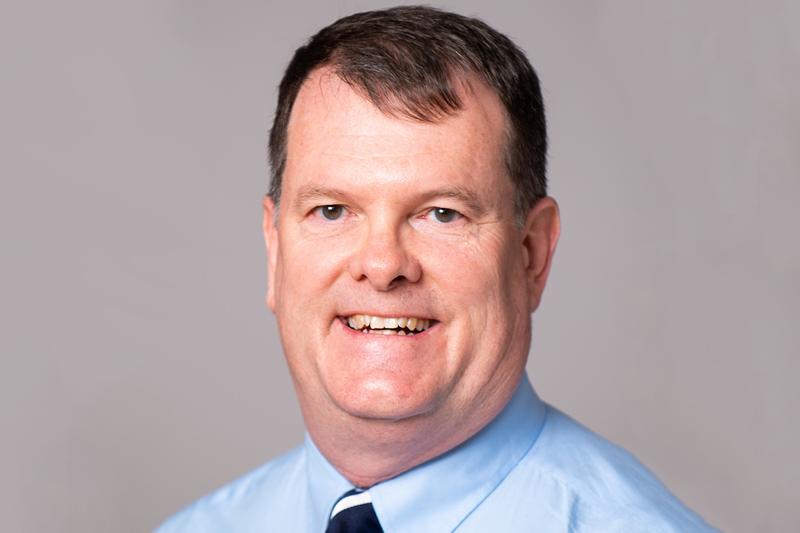-
About
- Departments & Offices
-
Academics
- Public Health
- Biomedical Sciences
- Physician Assistant
- Special Master’s (MBS)
-
Admissions & Financial Aid
- Tuition & Fees
-
Student Experience
-
- Student Resources by Program
- Academic & Student Support
- Wellness & Wellbeing
- Student Life
- Events & Traditions
-
-
Research
- Research Labs & Centers
- Tufts University-Tufts Medicine Research Enterprise
-
Local & Global Engagement
- Global Health Programs
- Community Engagement
Meet our faculty: Silas Pearman
Meet Silas Pearman, MA, DrPH, clinical associate professor in the Department of Public Health and Community Medicine at Tufts University School of Medicine.

In our online MPH program students benefit from our faculty’s experience as public health practitioners and their dedication to student success. This personalized attention ensures that students receive individualized guidance, feedback, and mentorship tailored to their unique needs and goals. Meet Silas Pearman, MA, DrPH, clinical associate professor in the Department of Public Health and Community Medicine at Tufts University School of Medicine.
What courses do you teach?
"I teach a variety of courses since I am a clinical faculty member, and my position has an emphasis on teaching, advising, and departmental service. I teach PH 201, Principles of Epidemiology; PH 203, Public Health Action; PH 254, Program Planning for Public Health Interventions; PH 285, Evaluation of Health Programs; and the Applied Learning Experience (ALE) courses, PH 301, Planning and PH 302, Implementation. I have also served as a small group instructor for the Medical School’s Introduction to Epidemiology & Biostatistics."
Why did you choose to enter the field of public health?
"I took a required undergraduate Wellness Concepts course in my sophomore year of college. It was in this course that I became fascinated with the function and care for the human body, leading me to major in health sciences at Furman University. I then explored the human performance side of these passions through a master’s degree in Exercise Physiology at the University of North Carolina at Chapel Hill. At the conclusion of my master’s degree, I knew that I did not want to become an exercise biochemist but rather wanted to focus on a more holistic approach to human health and well-being. This passion led me to purse a DrPH degree in Health Promotion and Education with an emphasis in adolescent health from the University of South Carolina (USC) School of Public Health."
And eventually why did you choose to become a professor?
"I knew from my junior year of college that I wanted to be a faculty member in higher education. I was surrounded by excellent faculty at Furman, and they inspired me with their teaching, their quest for knowledge, and the ways in which they helped mentor students. I pursued both graduate degrees with the hopes of becoming a college professor."
What are your areas of research and why did you pick them?
"While the emphasis of my current position at Tufts is teaching and advising, I build upon the work that I have done over the years in adolescent health as examples in the classroom. My dissertation topic explored the impact of having a required college health course experience on the lives of alumni up to decade after college. The USC School of Public Health had a strong emphasis on adolescent health, and I worked with colleagues at USC to support the CDC’s Youth Risk Behavior Surveillance System Surveys in South Carolina. I worked with the data concerning physical activity and nutrition habits. I am also interested in food literacy among adolescents and have conducted several projects that have sought to understand what younger generations know and don’t know about their food supply and food systems. I have also done work to evaluate alcohol education programs and skin cancer risk patterns among adolescents."
What accomplishments are you most proud of?
"I am most proud of my former students. I love seeing the way in which they pursue careers and how their graduate work that impacts the lives of people in their areas of professional passion. This stems from my own passion for teaching and mentoring, and I was humbled that the MPH Class of 2023 selected me as the recipient of Eileen O’Neill MPH Program Citation for Excellence in Teaching. I am also a huge fan of the Olympics, and I have studied them as a personal/academic hobby. I was fortunate to be asked to be a Torchbearer for the 2002 Salt Lake City Olympics—a torch run that started with Muhammed Ali and ended with the 1980 US Men’s Hockey Team!"
Why did you choose to teach at Tufts?
"I wanted to be part of a department that was committed to mentoring students, providing skills-based MPH education, as well as part of an amazing group of colleagues who are doing excellent research and teaching. Equally important, I was drawn to Tufts’ commitment to diversity and anti-racism. As a member of the LGBTQ community, I believed that I would be welcomed at supported in the Tufts community, and I have been very affirmed by colleagues and students."
What is a piece of advice you would like to share with Tufts students?
"Take advantage of the opportunity to learn and grow as a professional. Pursuing a graduate degree may be the last opportunity that you have to learn in a more structured environment with talented professors and classmates. Don’t just “push through it”— pause and really take the opportunity to learn and reflect on your educational experiences and opportunities and how they are preparing you to be a lifelong learner with a passion to help with our complex public health challenges of the 21st century!"
Department:
Public Health and Community Medicine